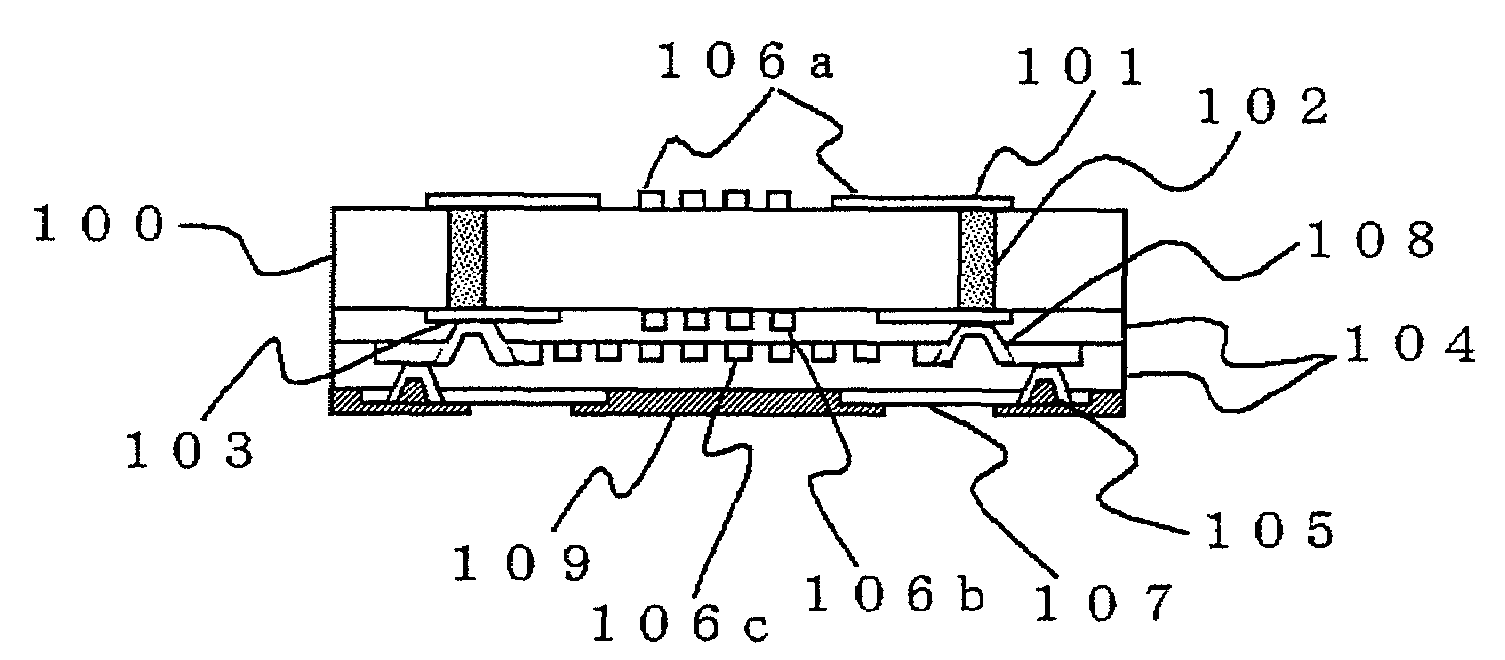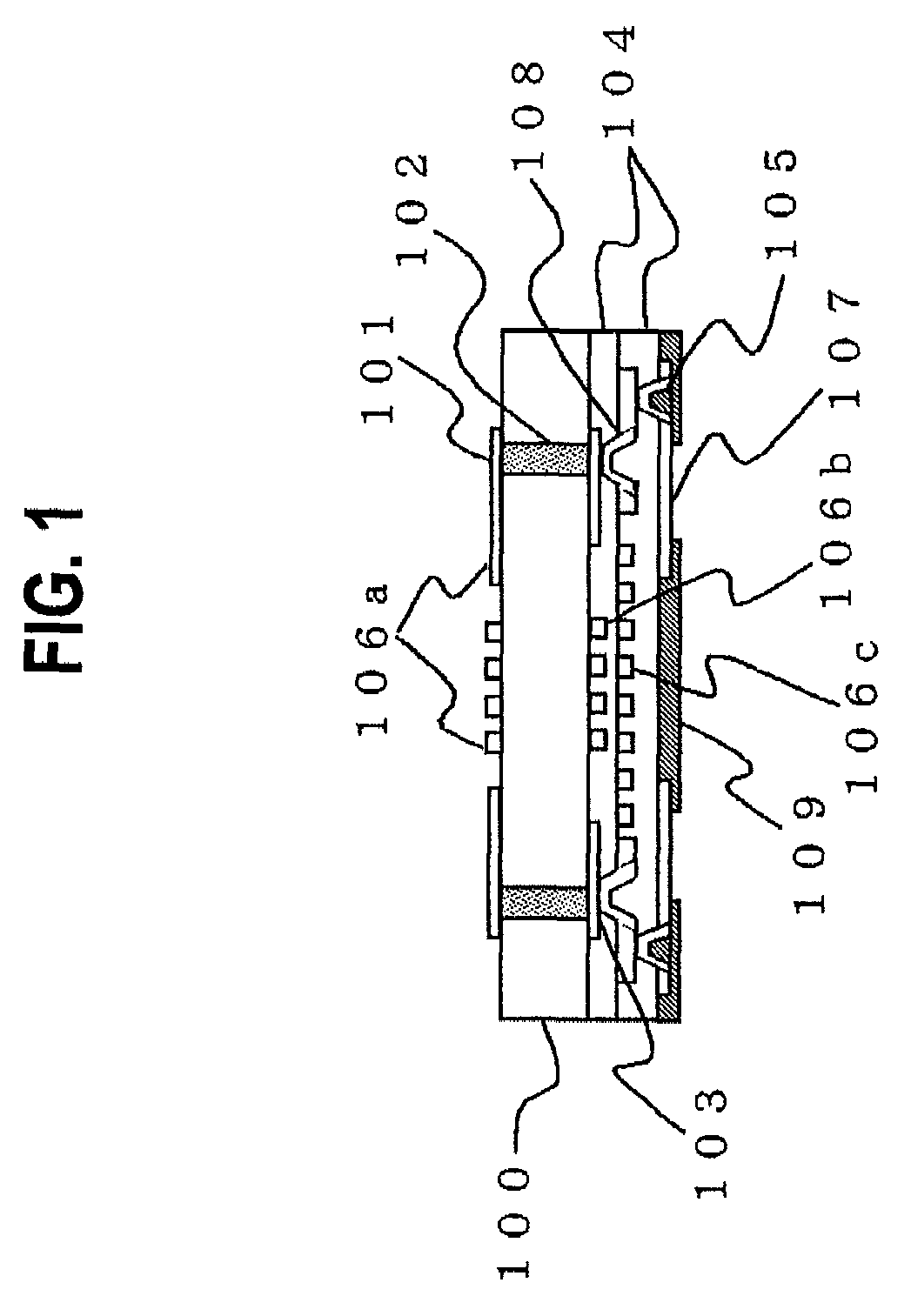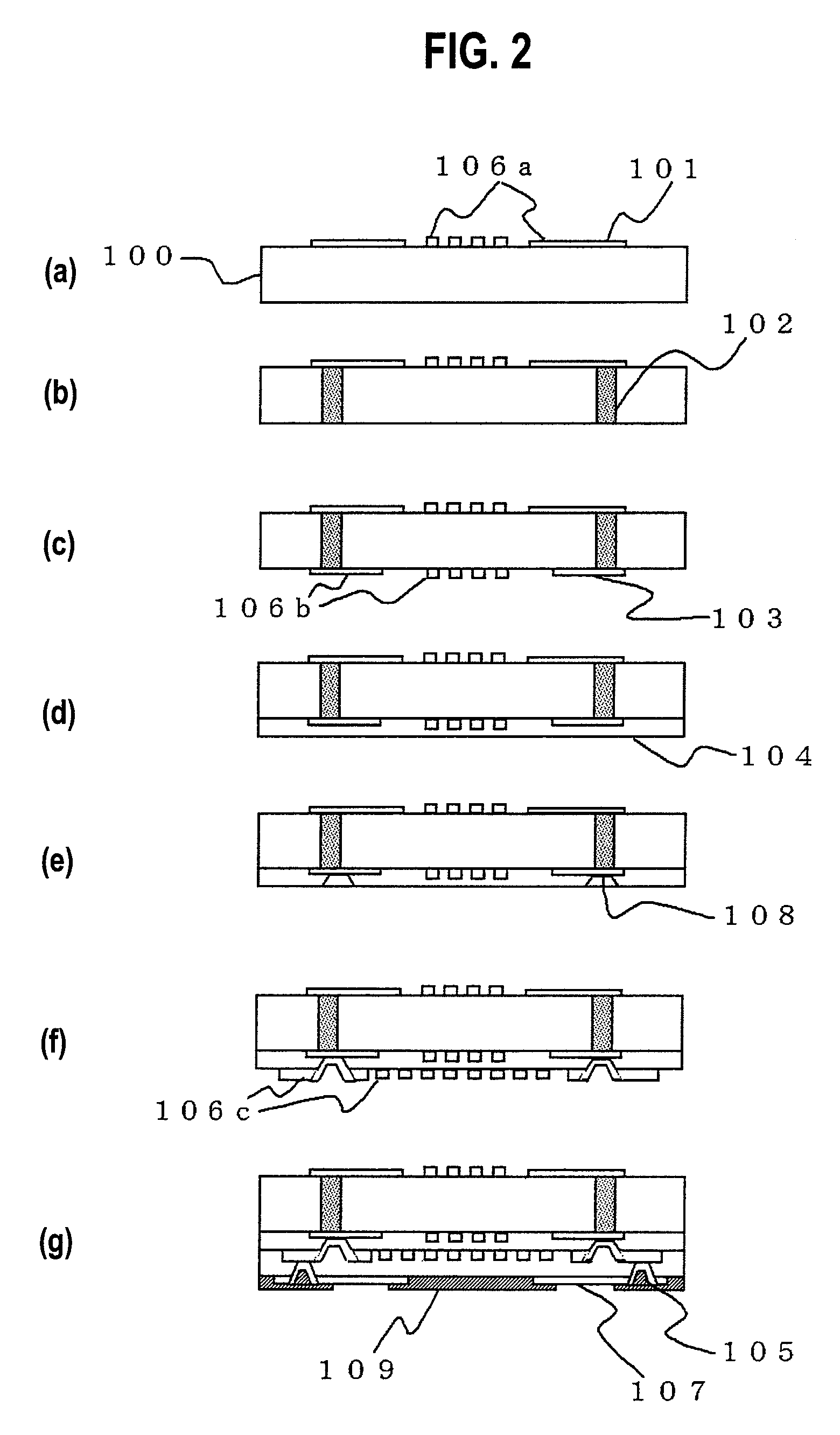Method of treating the surface of copper and copper
a technology of surface treatment and copper, applied in the direction of solid-state diffusion coating, superimposed coating process, transportation and packaging, etc., can solve the problems of reduced adhesion between the surface of copper and the resist pattern, difficulty in obtaining the accuracy of the resist pattern, and peeled resist pattern
- Summary
- Abstract
- Description
- Claims
- Application Information
AI Technical Summary
Benefits of technology
Problems solved by technology
Method used
Image
Examples
example 1
[0147]Semiconductor package samples were manufactured in the following manner to evaluate the reliability of a semiconductor package manufactured by applying the copper surface treatment of the present invention.
[0148](Step a)
[0149]A soda glass substrate (thermal expansion coefficient: 11 ppm / ° C.) of 0.4 mm in thickness was prepared as a core substrate 100. A 200 nm-thick copper thin film was formed on one surface of the substrate by sputtering, and then electroplated with copper to a thickness of 10 μm. The sputtering was carried out using an apparatus (model No. MLH-6315, manufactured by Ulvac, Inc.) in the following condition 1.
Condition 1
[0150]Current: 3.5 A
[0151]Voltage: 500 V
[0152]Flow rate of argon: 35 SCCM (0.059 Pa·m3 / s)
[0153]Pressure: 5×10−3 Torr (6.6×10−1 Pa)
[0154]Film formation speed: 5 nm / sec.
[0155]Then, an etching resist was formed on the part to be a first wiring 106a and then the copper layer was etched by a ferric chloride etching solution and then the etching resi...
example 2
[0190]A fan-in type substrate for mounting a semiconductor chip for BGA and a semiconductor package were manufactured in the same manner as in Example 1 except that a reducing process was carried out, the process including washing the surface of the second wiring 106b with water for 5 minutes, dipping the substrate at 40° C. for 3 minutes in a reducing process solution HIST-100D (trade name, Hitachi Chemical Co., Ltd.), washing further with water for 10 minutes and drying at 85° C. for 30 minutes, after copper oxide crystals were formed on the surface of the second wiring 106b in the (step d-2) and before the buildup layer 104 was formed in the (step d-3).
example 3
[0191]A fan-in type substrate for mounting a semiconductor chip for BGA and a semiconductor package were manufactured in the same manner as in Example 1 except that a coupling process was carried out, the process including washing the surface of the second wiring 106b with water for 5 minutes, dipping the substrate at 30° C. for 3 minutes in an aqueous solution containing 0.5% by weight of γ-aminopropyltriethoxysilane, washing further with water for 1 minute and drying at 85° C. for 30 minutes, after copper oxide crystals were formed on the surface of the second wiring 106b in the (step d-2) and before the buildup layer 104 was formed in the (step d-3).
PUM
| Property | Measurement | Unit |
|---|---|---|
| roughness Rz | aaaaa | aaaaa |
| roughness Rz | aaaaa | aaaaa |
| height | aaaaa | aaaaa |
Abstract
Description
Claims
Application Information
 Login to View More
Login to View More - R&D
- Intellectual Property
- Life Sciences
- Materials
- Tech Scout
- Unparalleled Data Quality
- Higher Quality Content
- 60% Fewer Hallucinations
Browse by: Latest US Patents, China's latest patents, Technical Efficacy Thesaurus, Application Domain, Technology Topic, Popular Technical Reports.
© 2025 PatSnap. All rights reserved.Legal|Privacy policy|Modern Slavery Act Transparency Statement|Sitemap|About US| Contact US: help@patsnap.com



